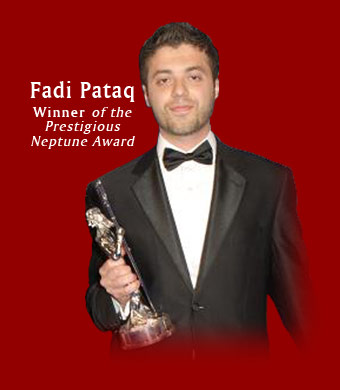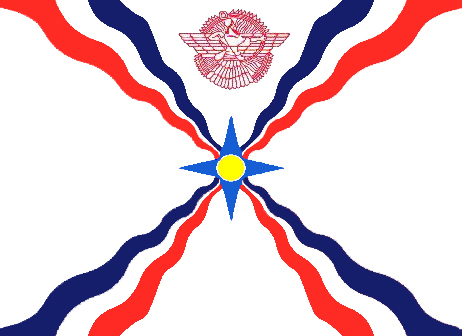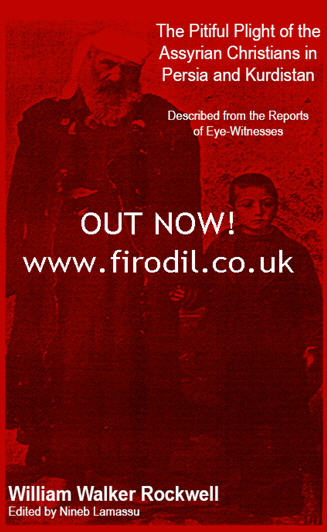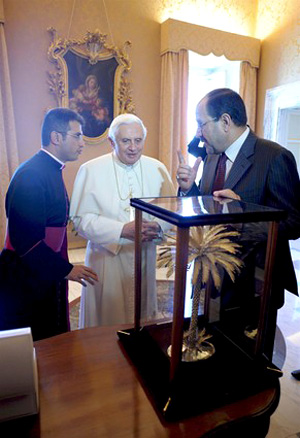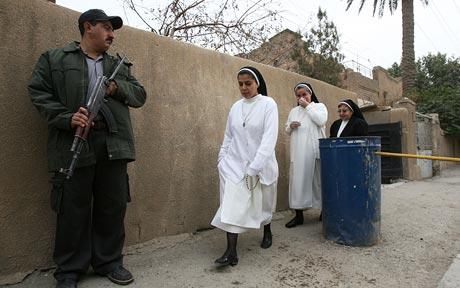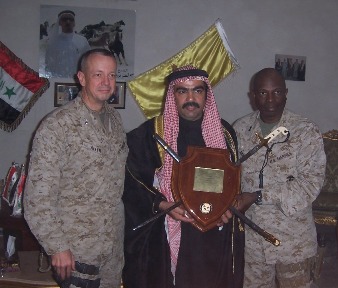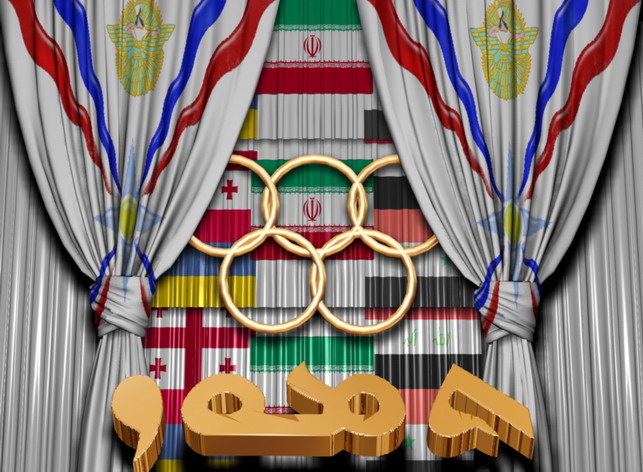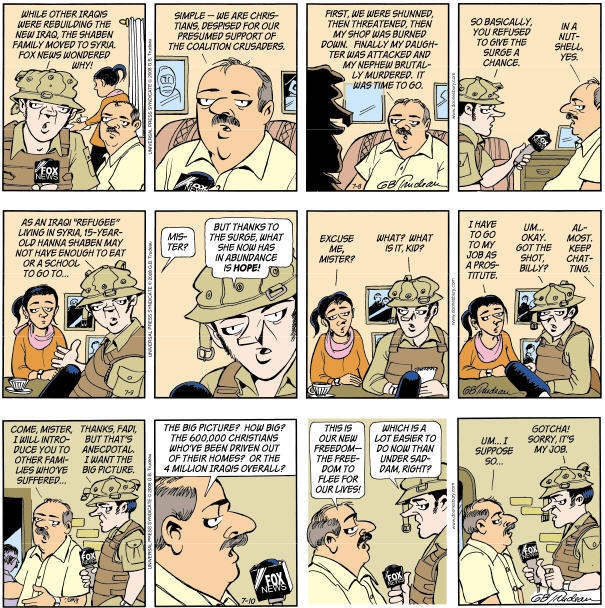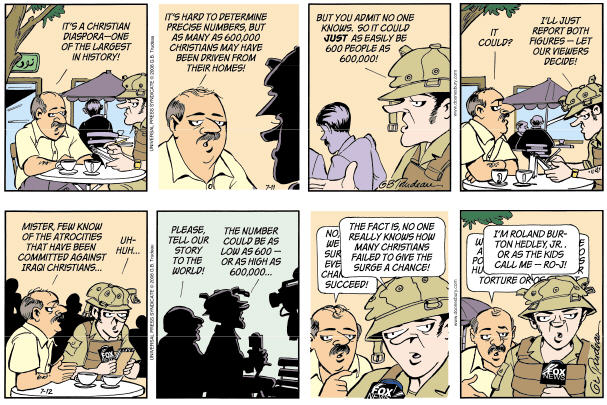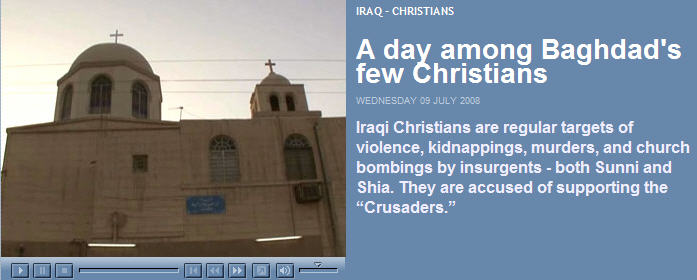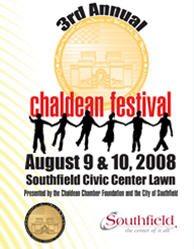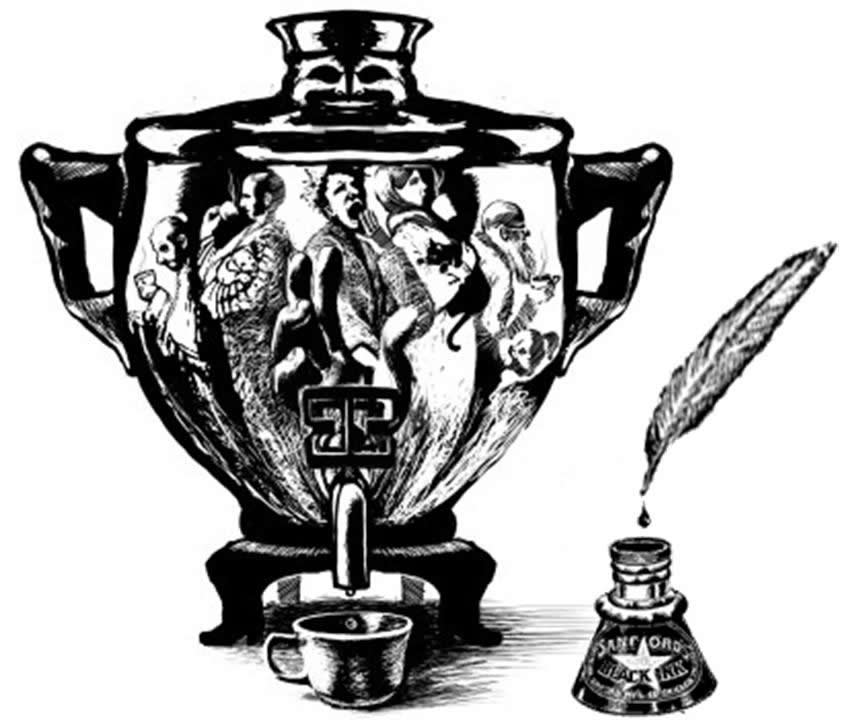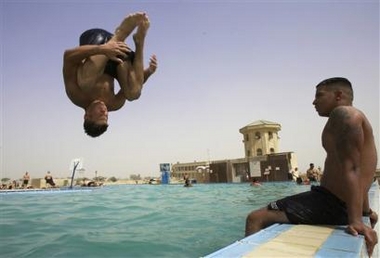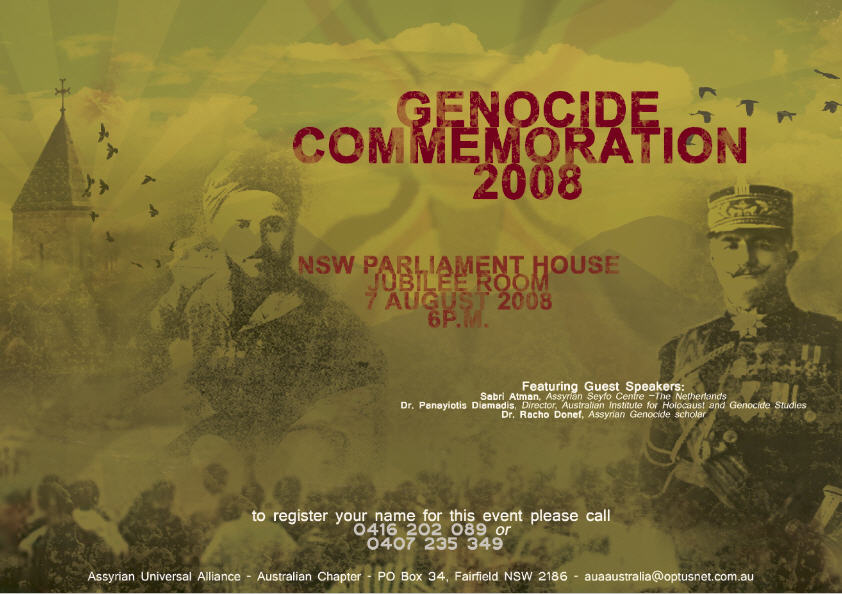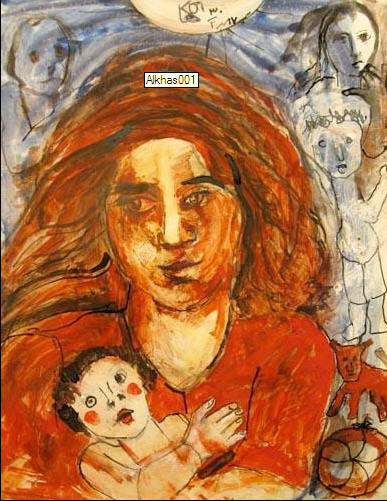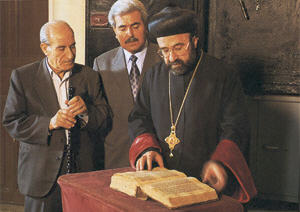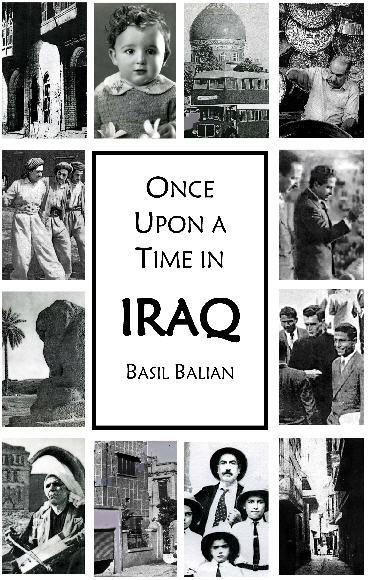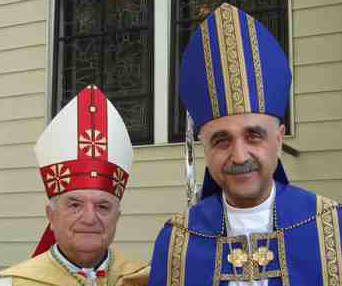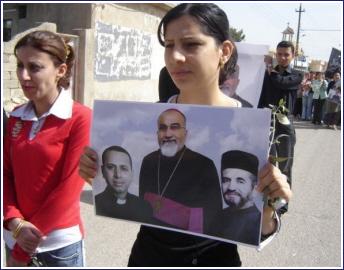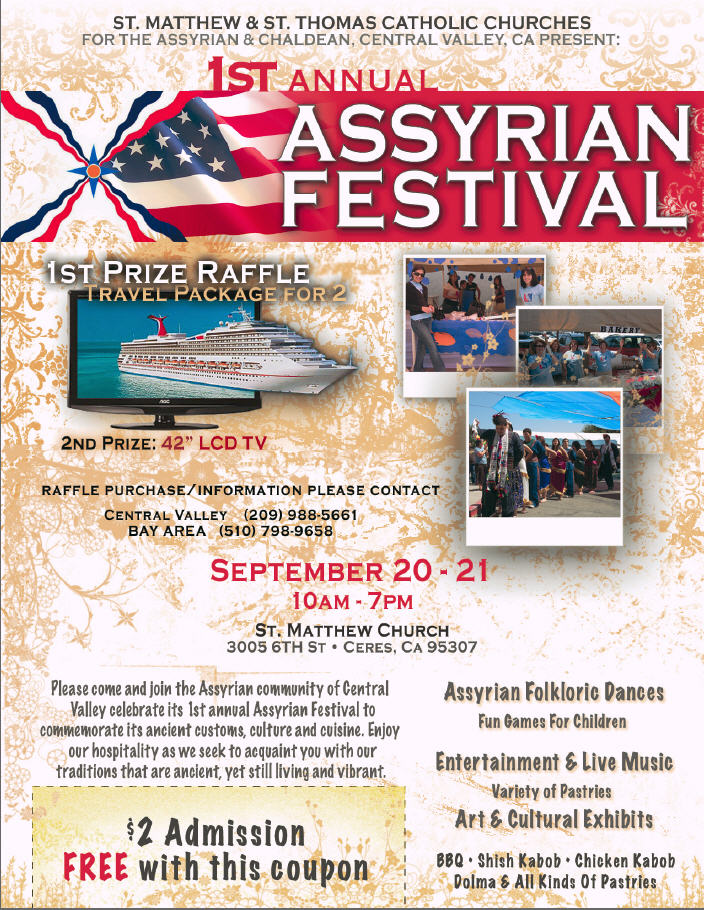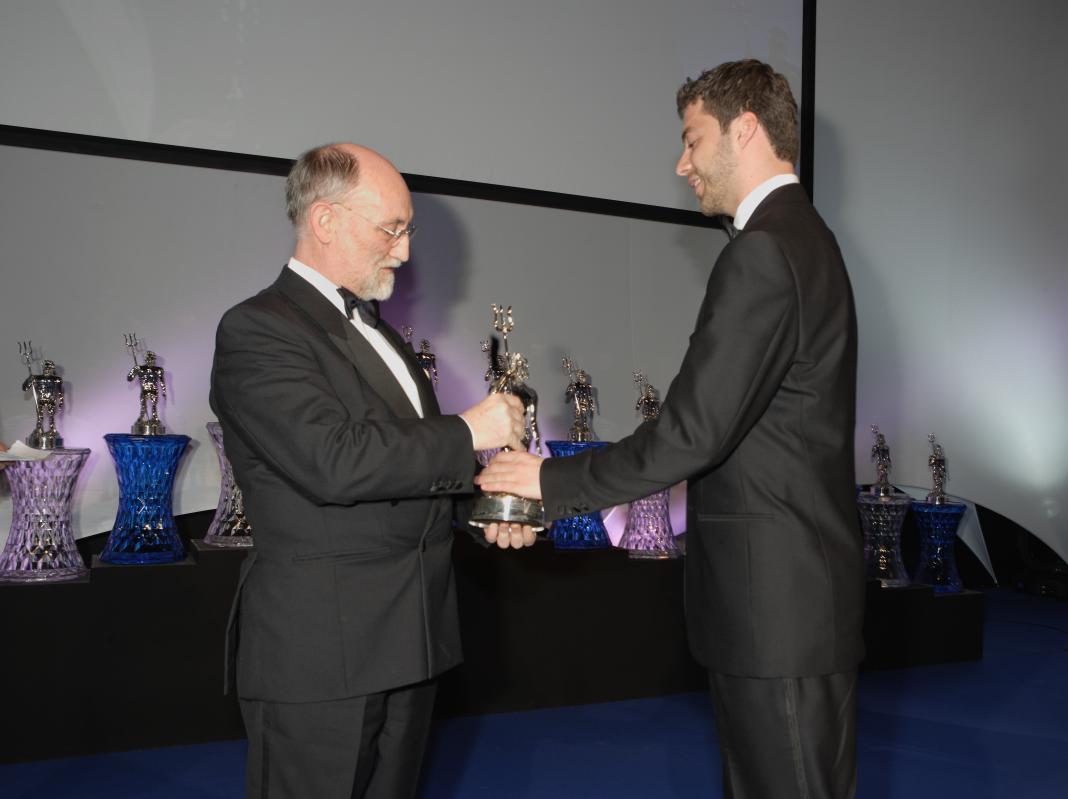European Parliament Conference Highlights Assyrian Suffering in Iraq
| FOR IMMEDIATE RELEASE |
14 June 2008 |
Assyria Council of Europe
Brussels
On Wednesday 11 June 2008 more than 100 guests attended a conference at the European
Parliament in Brussels on the situation of the Assyrians in Iraq. The event was organized by the Assyria
Council of Europe in cooperation with the European Peoples Party-European Democrats, the biggest bloc in
the European Parliament, and touched on crucial issues and questions regarding the plight and future
survival of Iraq’s indigenous people. Subjects discussed included the plight of Assyrian IDPs throughout Iraq,
Art. 125 of the Iraqi Constitution and the protection of minorities, territorial and extra-territorial
federalism, the situation of other Iraqi minorities, and EU aid to Iraq. The general consensus throughout
the conference was that the situation of the Assyrians in Iraq is precarious and more must be done by the
international community, including the EU, to protect the Assyrians.
His Eminence the Ambassador of Iraq to Brussels, Mr. Mohammed Al-Doreky, made it clear that it saddens
him when Assyrians leave Iraq and that as the indigenous people of the land they have a right to remain on
their ancestral homeland. In a very thought-provoking analysis, Dr. Willy Fautre of Human Rights Without
Frontiers also discussed whether territorial federalism alone in Iraq will suffice to protect its minorities or
whether there needs to be some kind of extra-territorial federalism also to ensure the survival and
protection of minorities wherever they reside in the country. Mrs. Pascale Warda of the Hammorabi Human
Rights Organization and the former Minister of Migration and Displacement, was adamant that the Iraqi
government must do more to ensure the protection of the Assyrian Christian community and reminded all
the participants that since 2003 at least 44 churches have been bombed throughout the country.
In addition to a good number of MEPs present at the conference, there were also representatives of various
NGOs, journalists and representatives of other Iraqi minority communities. Furthermore, His Beatitude the
Bishop of the Syriac Orthodox Church in Belgium, Severios Hazail Soumi, together with the Syriac Orthodox
Church Bishop of Mosul, Severios Hawa, was also present at the event. In particular, His Beatitude Hazail
Soumi asked the panelists why a safe haven in Iraq isn’t being created for the Christians whereas in the
1990’s steps were taken to protect the persecuted Kurdish and Shiite communities of Iraq. Mr. Ninos
Warda, ACE Project Director stated that, ‘This event has been a profound success because it has raised the
profile of the suffering of the Assyrians in Iraq in an institution which has on many occasions released
resolutions expressing its concern for the suffering of these people.’
It should be noted that the Assyrian community in Iraq is made up of various denominations including the Syriac and Chaldean Catholic
churches, the Assyrian Church of the East and the Ancient Church of the East, the Syriac Orthodox Church and also Protestant
churches.
Ishaia Isho Ousted from AGC Exec Committee
(ZNDA: Chicago) Based on a 'proclamation' dated 19 June the Executive Committee of the Assyrian General Conference (AGC) has determined that Mr. Ishaia Isho will no longer represent the said group and its executive members. The following note was submitted to Zinda office in Washington on 19 June:
We would like to inform the supporters and friends of the Assyrian General Conference (AGC) that Mr. Ishaia Isho is no longer representing the Assyrian General Conference and its executive committee. Mr. Isho has caused numerous problems within the structure of the Conference and its executive committee. He is the person responsible for making individual decisions without consulting the executive committee and referencing the AGC internal bylaws. He has caused the closure of the Conference site for more than a month and caused the non-issuance of the Journal of the Conference for more than a year. The executive committee members took the responsibility upon themselves to re-open the site and try to issue the journal (Ashuriuon) if possible until the next AGC conference in order to put all things straight for the sake of our just cause and oppressed nation.
Namrood Shiba
Assyrian General Conference - AGC
Swedish Parliament Refuses to Recognize 1915 Genocide
Courtesy of the AZG Armenian Daily
13 June 2008
(ZNDA: Stockholm) On 12 June the Swedish Parliament, with 245 to 37 votes (1 abstain, 66 absent), rejected a call for recognition of the 1915 genocide in the Ottoman Empire. The debate lasted over three hours.
On 11 June, Swedish MPs debated the report of the Foreign Committee on Human Rights and the including five motions calling upon the Swedish government and parliament to officially recognize the 1915 genocide.
A majority consisting of the ruling alliance parties together with the Social Democrats (opposition party) proposed that the motions be rejected, whereby the Green (Miljöpartiet) and the Left (Vänsterpartiet) parties announced their reservations, forcing the Parliament to have a debate in the main chamber before the proposal was voted on.
The motion to recognize the genocide was rejected based on four main assumptions:
- "…no particular consideration regarding the Armenian situation has ever been in form of an UN Resolution, either in 1985 or any other occasion."
- "The Committee understands that what engulfed the Armenians, Assyrian/Syrians and Chaldeans during the reign of the Ottoman Empire would, according to the 1948 Convention, probably be regarded as genocide, if it had been in power at the time."
- "There is still a disagreement among the experts regarding the different course of events of the dissolution of the Ottoman Empire. The same applies to the underlying causes and how the assaults shall be classified."
- [in regard to the development in Turkey] "…in the time being, it would be venturesome to disturb an initiate and delicate national process." [which could fuel the extremists in the country]
Mr. Yilmaz Kerimo, Assyrian and an MP in the Swedish parliament defied his own party - Social Democrats - and defended the recognition of the 1915 genocide.
Visiting Iraqi Christians Tell Exiles in Australia to Stay Strong
Courtesy of the Age
28 June 2008
By Julie Szego
(ZNDA: Sydney) Iraqi Christians George Eshaq and Romel Moshi bring a message of stubborn optimism to their exiled compatriots in Australia. "We tell them, 'Keep your connection with your people back in Iraq'," Mr Moshi says. "We hope and believe Iraq will be peaceful one day … and maybe then you can come back."
The two members of Iraq's Assyrian Democratic Movement — a party representing the country's Assyrian and Chaldean Catholic minorities that holds seats in the federal parliament — know they face an uphill battle selling this line. Despite their tiny numbers, since Saddam's fall Iraqi Christians have found themselves at the front line of the battle for Iraq's soul.
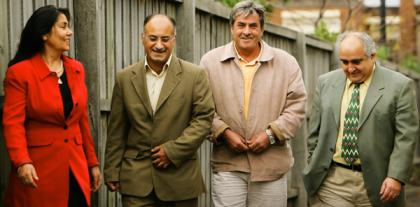 |
Seeking help: Iraqi Christians George Eshaq and Romel Moshi (centre) with Melbourne Assyrian community members Valentine Aghajani (left) and Wilson Kando (right). Photo: Roger Cummins |
Their religion makes them an easy target for Islamist fanatics, while insurgents have tended to single them out as "collaborators" with the US military. It is estimated that since the US-led war almost half of Iraq's 1 million or so Christians have been forced to flee, with hundreds of thousands stranded in Syria and Jordan. Australia recently announced it would lift its refugee intake by 500 in the coming year and leaders from Melbourne's Assyrian community, such as Wilson Kando and Valentine Aghajani, believe their people stand to benefit.
Emissaries Moshi and Eshaq are in Melbourne to rally distant supporters — their party scored about 8000 votes in the 2005 Iraqi elections from Australian expatriates — and feast at places such as the Babylonian-themed Aghadeer restaurant in Brunswick.
"Their position is not to encourage the Assyrian and Chaldean community to leave Iraq," Mr Kando says. "But our people are stuck in Syria and Jordan for years, our children have sacrificed their education, our women have been forced into prostitution."
Mr Moshi and Mr Eshaq have themselves endured a rocky journey, which began in the 1990s when they joined forces with Kurdish reformers in the semi-autonomous north. After Saddam's fall in 2003 they joined a Christian militia and patrolled a country descending into anarchy. Eventually they reached Baghdad where their comrades had occupied the former headquarters of Saddam's notorious paramilitary group, the Fedayeen. They bunkered down as shadowy forces picked off Christian and civil society leaders. Catholic clerics were murdered, along with many Assyrian Democratic Movement activists.
Mr Eshaq, who still lives in the movement's Baghdad headquarters, says of the recent drop in violence that has followed the "surge" of US troops: "A few months ago we never left the base. Now we go out until the evening; in the shops, in town, there's more freedom now, more safety." Mr Moshi says there's also fresh hope for national reconciliation since the Iraqi Government launched a military campaign in March against radical Shiite cleric Muqtada al-Sadr's Mahdi Army. "The Sunni minority began to change then, they felt encouraged." The two want US troops to stay for as long as the Iraqi army and police force need backing.
But what of their movement's aim of building a secular, democratic Iraq that safeguards minority rights? "It's very difficult," Mr Moshi concedes. Says Mr Eshaq: "We believe the only thing that will change the minds of religious people to be secular is economic progress. It's very easy for someone who doesn't feel like they lead a comfortable life to kill and be killed."
Assyrian Actuary Swims Across the English Channel
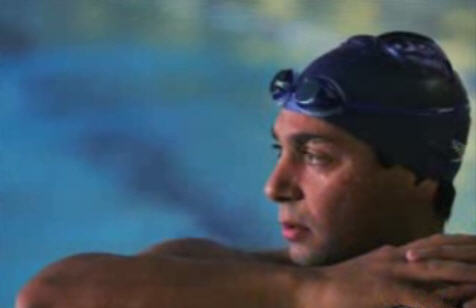 |
Kiase Stephan successfully swam across the English Channel on 13 July. |
(ZNDA: Sydney) The Assyrian swimmer, Kaise Stephan, successfully swam the English Channel in 12.5 hours on Sunday, 13 July.
Mr. Stephan left Dover Beach at 2:30 PM and arrived in France at 3:00 AM on Monday, 2 July14. His total swim path was around 35 kilometers long.
"After a quick photo shoot on the beach with support swimmer Ryan [Ainley] and the [Australian] flags, he returned back to the boat very cold and emotional in disbelief, relief and joy,'' said Mr. Hanna Stephan, Kaise's brother.
Mr Stephan said his brother had been "sleeping on the boat ever since'' and was to go to bed once back on shore.
During the swim, cargo ships and ferries passed alongside Mr Stephan.
To keep his energy levels high, he was fed bananas, diced fruit salads, water, energy drinks and power bars. The water temperature was 15 degrees.
Mr Stephan trained for 2 years before swimming the Channel - from England to France - to raise money for the Children's Hospital at Westmead.
Before the Channel swim, Mr Stephan, who is an actuary with Munich Re, had swum just six kilometres in open water.
He decided to take up the challenge after witnessing his cousin, Mark, successfully battle leukaemia at the hospital. Mr. Stephan is the son of Dr. Said Stephan, a former president of the Assyrian Australian Academic Society (TAAAS) and the current president of the Assyrian Aid Society in Australia.
For more information click here. To view a promotional video on YouTube click here.
Assyrian Beauty Reaches Finals at Mrs. World Contest
 |
Monalisa Lazarof, represented Iran at the Mrs. World 2008 contest in Russia in June. |
(ZNDA: Los Angeles) On 30 June the annual beauty contest for beautiful married women, titled Mrs World, was held in Kaliningrad, Russia. Mrs. Ukraine, Nataliia Shmarenkova, was crowned Mrs. World 2008. Among the top 10 finalists was the beautiful Mrs. Iran, Monalisa Lazarof, an Assyrian from Southern California.
Monalisa Lazarof was born in the city of Shiraz, Iran in 1966. Her father, Mikhail Khachi, was a mechanical engineer and the head of Engineering Department at the National Iranian Oil Company (Sherkat-e Melee Naft-e Iran).
Her mother, Valentine Daniel Vardeh, taught as a professor at the All-Girls College (Madrese Auli Dokhtaran), teaching fashion design. Monalisa left Iran in 1978 when her fathered was sent on assignment to London, England.
Her family moved to several European countries until they settled in the United States in 1980, where Monalisa graduated from high school in San Mateo, California and then completed her Bachelors in Business Administration with a Minor in Entreprenership at California State University.
In 1989 Monalisa married Dr. Sargon Lazarof, a past clinical professor at the University of Southern California school of Dentistry and the inventor of the Sargon Immediate Load Implant. Monalisa began working in 1995 as the Regulatory Affairs and Quality Assurance manager at Sargon Enterprises.
Mr. and Mrs. Lazarof have two daughters, Rebecca, 11, and Sagonia, 14.
Monalisa is very active in charities, such as The Las Floristas Children’s Charities, the Breast Cancer Foundation and her daughters' schools.
Monalisa's hobbies are Hatha Yoga, dancing, making custom jewelry, cooking gourmet foods and interior designing.
Final Statement of Mor Jacob of Edessa Symposium
| FOR IMMEDIATE RELEASE |
9 June 2008 |
Aleppo, Syria
The Symposium commemorating the 1300th anniversary of the passing away of Mor Jacob of Edessa, the prominent Syrian polymath was held in Aleppo, Syria, June 9 – 12th, 2008.
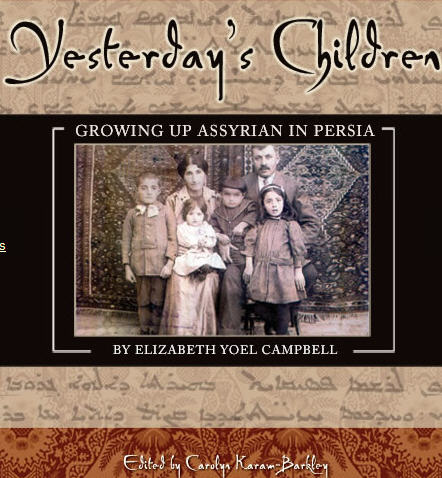 |
Click above photo to enter official website |
The Participants who came from Austria, Canada, Germany, Netherlands, Turkey, United Kingdom and the United States as well as Lebanon and Syria enjoyed the papers presented at the Symposium, included contributions from scholars and specialists in Syriac studies. These contributions, which included twelve papers that were delivered in five sessions, discussed the writings of the celebrated scholar Mor Jacob of Edessa as a chronicler, man of letters, grammarian, exegete, theologian, and as a major contributor to church liturgy and canon law.
The proceedings of the Symposium also included an opening session in which a welcoming address was delivered by Mor Gregorios Yohanna Ibrahim, Metropolitan of Aleppo and a keynote lecture by Prof. Dr. Malphono Sebastian Brock, as well as a final session.
The Symposium programme included visits to a number of archaeological locations of Syrian monasteries that for centuries were beacons of knowledge. These included the Monastery of Tell’Ada, where Mor Jacob lived the last ten years of his celebrated life, and where he died and was buried on June 5th, 708; the Monastery of St. Simeon the Stylite, a major fifth century cathedral that was named after St. Simeon the Stylite, the founder of the Stylite Monastic practice; the recently uncovered Monastery of Qenneshrin, which was founded by Yohanna Bar Aphtonia in 538 and which remained active up to the thirteenth century; and the town of Mabug, the birth place of Theodora, the Syrian Queen, and the seat of Mor Philoxenus of Mabug ( + 523).
In its final session, the Symposium resolved the following:
- The proceedings of the Symposium will be published in English by Gorgias Press and in Arabic by Mardin Publishing House. The full texts of the papers should be submitted to Gorgias Press by October 1st, 2008 and the Arabic translation of the texts to be completed by March 1st, 2009.
- Encouraged by the immense success of the Symposium and in order to promote continuity in the study of the Syriac literary heritage, and in recognition of Aleppo’s special place in this heritage, it was decided to hold a series of colloquia, each under the title Aleppo Syriac Colloquium (A.S.C.), every two years. Each colloquium will be devoted to one theme or studying the works of one renowned historic Syriac Scholar. The subject of the colloquium will be defined one year in advance and expert scholars will be invited to participate. In this respect it was resolved to hold the next colloquium during the second half of June, 2010 in Aleppo and will address the work of the outstanding Syrian polymath Mor Gregorios Yohanna Abu al-Faraj Barhebraeus (+1286).
- The participants expressed their profound appreciation and thanks to the host of the Symposium, Mor Gregorios Yohanna Ibrahim, for his initiative to hold the Symposium, for his tireless efforts, which ensured its complete success, and for the generous hospitality. As a token of this appreciation, the participants presented His Eminence with a book authored by George Kiraz that included on its initial pages hand written notes that expressed their appreciation. The participants also expressed their deep thanks to the secretariat of the Symposium, to the monks and deacons and members of the different working groups of the Aleppo Syrian Orthodox Archdiocese, particularly the board of trustees of St George Church in Hay Al-Syrian, which accommodated the venue of the Symposium.
LIST OF THE SCHOLARS
- Metropolitan Mar Gregorios Yohanna Ibrahim (Syria)
- Prof. Dr. Malphono Sebastian Brock (UK)
- Fr. Dr. Abdo Badwi (Lebanon)
- Prof. Dr. Khalid Dinno (Canada)
- Prof. Dr. Theresia Hainthaler (Germany)
- Prof. Dr. Amir Harrak (Canada)
- Dr. Andrea Juckle (Germany)
- Dr. George Kiraz (USA)
- Rev. Dr. Richard Price (UK)
- Prof. Dr. Alison Salvesen (UK)
- Dr. Aho Shemunkasho (Austria)
- Rev. Dr. Columba Stewart (USA)
- Jack Tannous (USA)
Assyrian Flag Shows Up at Euro 2008 Soccer Game
(ZNDA: Vienna) On 12 June, to the astonishment of many Assyrian viewers of the Euro Cup soccer games held in Austria, an enormous flag of the Assyrian nation was seen waving in the crowd.
Nineteen minutes into the soccer match between Croatia and Germany, played in Klagenfurt, Austria, the camera follows the German Player, Lukas Podolski, and suddenly the large Assyrian flag appears in the background. To view the footage click here (YouTube Video).
2009 Christians in Ottoman Empire Conference in Canada
Courtesy of the PanArmenian.net
13 June 2008
(ZNDA: Toronto) In a reception organized by the Canada-based Union of Middle East Christians to honor Arman Hakobian, Armenia’s Charge d’Affairs in Canada, it was noted that the Armenian Embassy may be possibly sponsoring an international conference titled the "Christians in Ottoman Empire" in 2009.
The Union of Middle East Christians includes the Coptic Orthodox and Catholic Churches, Chaldean and Assyrian Orthodox Churches and a number of others.
Pulitzer Prize-winning Cartoonist Gary Trudeau Lampoons Coverage of Assyrian refugees
Courtesy of Christianity Today
15 July 2008
by Susan Wunderink
Gary B. Trudeau’s Doonesbury, which newspapers publish either with the comics or the editorial cartoons, just wrapped up a series about Iraqi Christian refugees. Roland (in this series a Fox News correspondent) is trying to cover the story of an Assyrian family in a way that is flattering for the Surge. Doonesbury treats the imaginary Iraqis with a great deal of dignity. Fox News doesn’t fare so well.
Fox News actually did run an Associated Press story about “Christians Fleeing Violence in Iraq” in early May, which brings up the matter of ransoms most Christians pay for "protection."
The background--not in the comic strips, although alluded to--is that Iraq’s Christians, the largest non-Muslim religious group in Iraq , are represented disproportionately in the refugee population (although it should be mentioned that the Assyrian diaspora dates back to World War I). It's such a huge drain that some churches in Iraq have no members left. Christians can be identified by their names and ID cards, and they are often targeted for violence. The Assyrian International News Agency (AINA) is calling it genocide. So, many Assyrians leave as soon as they can. Others, like the family in Doonesbury, wait until something unbearable happens.
CT suggested in an editorial that U.S. and Iraqi governments should:
Stop discrimination in aid grants by naming a special aid coordinator in Iraq to insure that Christians and other minorities receive a fair share of international assistance.
Implement the creation of a homeland for Christians in Iraq's Nineveh Plains to be governed jointly by Christians and other minority groups. (This is provided for under article 125 of Iraq's new constitution.)
Provide more comprehensive care for the estimated 3 million Iraqi refugees and internally displaced people. The United States should follow through with its commitment to resettle more refugees from Iraq. In 2006, only 202 were resettled, while a total of 20,000 had been authorized.
Remove religious affiliation from identification cards. There could hardly be an easier way to protect the lives of Christian civilians, such as Ayad Tariq, than issuing new ID cards minus religious labels.
AINA divides Assyrians up into five groups: Chaldeans (of the Chaldean Catholic Church) at 45 percent, Syriac Orthodox at 26 percent, Church of the East at 19 percent, Syriac Catholic at 4 percent, and other groups at 6 percent. In 2005, 2 percent of Iraq's population was Christian, according to the World Christian Database.
CT published an article on Iraqi Christian refugees in 2006.
Iraqi Bishop Protests World Youth Day Visa Denials
Courtesy of the Catholic News Agency
14 July 2008
(ZNDA: Sydney) Chaldean Iraqi Bishop Philip Najim has accused the Australian government officials of "mistrust and bureaucracy" in approving only 30 out of over 170 visa applications for World Youth Day.
Catholic News Agency reports the Australian government has denied visas to dozens of World Youth Day pilgrims from Iraq, citing concerns that participants will not return home and instead will seek asylum in Australia.
One Chaldean Catholic priest called the decision "a slap at young people who wanted to go to witness to the faith and the joy of the Church’s living in Iraq despite sufferings."
Initially the Australian government denied visas for nearly 170 pilgrims, allowing only ten visas to aspiring World Youth Day participants, the SIR News Agency says. According to the website Baghdadhope, there are now only about 30 total visas available that will be granted "in extremis".
Father Rayan P. Atto, parish priest of Mar Qardagh Church in Arbil, told SIR News Agency that the concerns about asylum seekers were unfounded, arguing that, "for young Christian Iraqis, taking part in the WYD in Sydney was not a way to leave their country."
"Most of the group members come from northern Iraq, a quiet area," he continued. "They have no reason to escape and they would certainly not do it on an occasion related to faith."
Before it was reported that 30 visas would be available for pilgrims, Father Atto said the Australian Embassy in Amman, Jordan had approved only ten visas. "How can one reduce a group of almost 170 people down to just ten?" he asked.
The news of the 30 total visas did not satisfy Bishop Philip Najim, Chaldean Procurator to the Holy See.
"This is a real scandal, a slap at young people who wanted to go to witness to the faith and the joy of the Church's living in Iraq despite sufferings," Bishop Najim said, speaking to MISNA news agency.
"The dream of young Iraqis to participate in World Youth Day in Sydney shatters against the wall of mistrust and of bureaucracy, after the Australian embassy in Amman completely denied the visas in the beginning and then, today, granted 30 entry visas to the country… just 30, of which 12 are for religious and only 18 for young boys and girls, on a list of 170 people delivered since last year."
"The refusal of the entry visas to the young Iraqis who wished to attend the World Youth Day makes us very sad," said Chaldean Bishop Jibrail Kassab of the Eparchy of Oceania and New Zealand.
The Australian Embassy said that political, not economic reasons motivated their decision. The embassy said that in most cases the documents concerning the employment and financial situation of the pilgrims are missing.
However, CNA says that the embassy is reported to have been informed that the Church would guarantee the visa applicants’ expenses.
AAS-A Set to Achieve BBB 'Seal of Approval'
Courtesy of the Assyrian Aid Society - America
3 July 2008
(ZNDA: San Francisco) The Assyrian Aid Society of America (AAS-A) is in the process of receiving Better Business Bureau (BBB) recognition as a national charity that adheres to the BBB's strong and comprehensive Standards for Charity Accountability, to clearly assure our donors and supporters that AAS-A is financially responsible, accountable, and trustworthy.
At it's meeting in Detroit on March 1, 2008 the AAS-A Board of Directors adopted a list of bylaw revisions written specifically to address the BBB standards, including institution of annual independent financial audits and requiring the Board to meet three times each year instead of only once.
The BBB standards are rigorous and demanding, having been developed to evaluate large non-profit charity corporations with multi-million dollar annual budgets. While AAS-A is not a multi-million dollar corporation, we invited those same standards to be applied to us in order to maintain the confidence of our donors as well as to make AAS-A a better organization.
AAS-A has worked diligently with BBB representatives to insure that we are taking all of the necessary steps to meet their standards. We look forward to conducting that third Board of Directors meeting in November and thus being in full compliance with the standards of the Better Business Bureau Wise Giving Alliance.
No other Assyrian charity organization has met the Better Business Bureau standards. We encourage them all to join us in pursuing this noble achievement.
Daylight and Darkness in a Baghdad Women's Home
Courtesy of the Washington Post
7 July 2008
By Andrea Bruce
(ZNDA: Baghdad) Doris Yunan sits in the empty dining room where the sun can find her. With help from the wind, shapes and shadows tease her from the picture window. The sun winks at her from behind a bowing date palm. The light creates a sensation that sometimes, she says, overcomes her blindness.
Doris, 83, sits here in her regular spot especially when she prays. Arabic romance movies play in the next room, keeping the attention of 14 other elderly women who live at Beit Anya, a charity home in Baghdad run by Christians.
The home takes in women left abandoned by death or family or war. Most are old, some are handicapped. Before the war, when the home was opened, there were only four women living here. Now there are 47.
"When it hurts, I can't see anything," Doris says. "But now it is not hurting me, so I can see a little."
Eve Peters, a 21-year-old volunteer, sits half a table away, just in case.
Doris says it's nerve damage. She can't see the walled courtyard outside the window, the well-watered rose bushes or the hundreds of garlic bulbs hanging off the wrought-iron fence. But every morning she wraps a scarf around her head perfectly, in the traditional Assyrian style.
Her story is similar to those of most of the women here.
She married a widower. When he died four years ago, her stepsons escaped the war, leaving the country and abandoning her on the streets of Baghdad.
She lived on a bench in a church for a year before moving into Beit Anya.
Three times a day, she sits in one of the plastic chairs in the dining room, surrounded by walls lined with cheap prints of Bible scenes, and prays, one bead after another, with her rosary.
No one visits her.
Iraqi Refugees Condemn EU Decision on Their Intake
Courtesy of the Deutsche Welle
25 July 2008
(ZNDA: Brussels) The German push came at an EU Interior Ministers meeting last week in Brussels in which it was agreed to delay any decision on increasing Iraqi refugee intake until September.
The move aroused anger of many refugees who fled violence in Iraq.
"Germany has the right to refuse to take us in but it cannot ask other countries to deny the humanity of welcoming refugees," said one refugee.
Some Iraqi refugees think that the EU decision was influenced by Iraqi Prime Minister Nuri al-Maliki, who is seeking to bring Iraqis back home.
The refugees however say returning to Iraq would not be easy as most of them have had their homes appropriated by others after they fled.
Meanwhile, some Iraqi Christian refugees think that the EU offer to take them in has come a bit too late. "Why didn't it come in mid-2005 when killings and acts of violence were taking place," said one 61-year-old refugee.
Every month, Germany takes in an average of 600-700 Iraqi refugees, most of them Christians.
The EU decision was also criticized by the evangelical church in Germany and some human rights groups including Amnesty International.
Assyrian Man Arrested for Drug Trafficking Through
US-Canada Border
Courtesy of the Ottawa Citizen
30 July 2008
(ZNDA: Ottawa) An Assyrian resident of Windsor, Canada faces federal drug charges after U.S. border guards at the Ambassador Bridge found more than 17 kilograms of ecstasy in the spare tire of his minivan. "
A tire normally has a hollow sound -- this one didn't. It was a thud," said Chief Ron Smith. Adwar Odisho, 43, told border agents he was going to the United States to purchase auto parts but they became suspicious when a device designed to measure tire density produced a high reading.
A sniffer dog also reacted to the tire. Mr. Odisho has been turned over to U.S. Immigration and Customs agents.
Chaldean Festival Set for August 9 - 10
Chaldean Festival set for Aug. 9-10
30 July 2008
By Jennie Miller
(ZNDA: Detroit) Embracing culture and tradition, and thriving with family fun, the local Chaldean community is inviting the masses to once again share in its celebration during the annual Chaldean Festival.
The event is set for Saturday and Sunday, 9-10 August, from 2 p.m. to 11 p.m. on the front lawn of the Southfield Municipal Complex.
“We have such a large community and a very rich culture,” said Lisa Kalou, director of operations and events for the Chaldean-American Chamber of Commerce, based in Farmington Hills. She added that according to a recent household survey conducted by United Way and Walsh College, there are 120,000 Chaldeans in the metropolitan Detroit area.
“With this event, we wanted to put ourselves out there and show everyone our culture,” Kalou said of the third annual event.
The chamber, which has 1,200 members and represents the greater Chaldean business community in southeastern Michigan, organizes the event in partnership with the city of Southfield.
“It is a wonderful couple of days,” said Martin Manna, executive director of the chamber. “We’re very happy with the partnership with the city of Southfield. Being the center of it all, Southfield is a good place for us, because it’s also the home of the Chaldean Catholic (diocesan center) and the Chaldean Senior Home. We have a large Chaldean population, and Southfield is very central.”
The celebration is not just for the Chaldean crowd; all are welcome to attend, with a major purpose being to expose the masses to Chaldean culture, such as music, dances and food. There will be an estimated 100 food and merchant booths set up on the front lawn of the Civic Center.
“It’s great to see people attend this event, try our food, hear our music,” Manna said. “I think there is often a misconception about our community, and this is a wonderful opportunity (to dispel that misconception). Once we experience people’s cultures, we can gain a better understanding.”
The event is filled with fun for all ages, with children’s activities such as a dunk tank, a rock climbing wall and inflatables. There is also a raffle with a $10,000 grand prize.
“It’s a very fun, festive event,” Manna said, adding that an estimated 25,000 people came out to last year’s shindig. “We think that’s just going to continue to increase in our third year. It’s just getting bigger and bigger.”
The city is thrilled to host this event for the third time.
“We’ve always had a great relationship with the organization,” said Bill Waterhouse, director of the Southfield Parks and Recreation Department. “It’s a good time to come out and celebrate a little family fun. Whether or not someone is from the city of Southfield or the metro Detroit area, and whether or not they’re a part of the Chaldean community or just the general population, the Chaldean Festival has always celebrated families in a very special way. (It’s a chance) to come and learn a little bit about someone else’s culture.”
Admission is free, but some activities, as well as food and merchandise, carry a nominal cost. Proceeds from the event benefit the nonprofit Chaldean Chamber Foundation charity.
For more information, visit www.chaldeanchamber.com.
In Memoriam: Melina Oshana 1940-2008
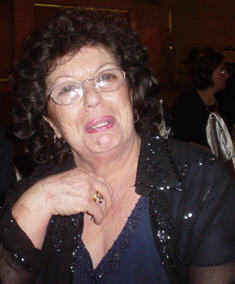 |
Melina Oshana passed away on 29 June 2008. |
Melina Oshana passed away on June 29, 2008 in Modesto, California, after a three-year struggle against cancer. She was 68.
She was laid to rest on July 1, at Turlock Memorial Park, following a church mass by Fr. Kamal Bidawid at Mar Toma Catholic Church in Turlock, with a memorial luncheon at the church hall where she was eulogized by her brother Basil Pius.
Melina was born in Habbaniya, Iraq, in April 1940. She was the seventh of eight children of Khammo Pius and Soriya Kakko Poloss. The family lived in Habbaniya for 15 years and 25 years in Baghdad, where her father and brothers had a prosperous book business from 1953 through 1973, established by her late brother Aprim.
Melina was married to Oshana Qomsor Oshana in December 1979, just before she immigrated to America with her younger sister Nina, to rejoin their older brothers Basil Pius and the late Rafael and Aprim and families. She arranged for her husband and his mother to rejoin her after a few months and helped her brother-in-law (edma) Sargon Oshana and family to rejoin them also in Turlock, California.
Melina and Oshana were blessed in Turlock with their first and only child Sargis, now a quiet, gentle young man of 27.
Melina worked for several years in canaries, and had a profitable alteration business in Modesto for the last 20 years, while also doing at times charitable work for the church. She was a lively and sociable person, hospitable and generous, donating freely to Assyrian charities and causes, sometimes also to strangers who were down on their luck. She took care of her sightless mother-in-law at her home from 1980 to the time she died a year ago.
Melina had a strong faith in Jesus and His Mother Mary and maintained her conviction until the very end, receiving the grace of absolution and the Eucharist shortly before her death and the last rites while comatose. She never wavered in her faith, never indulged in self-pity till the end.
She also had very strong personal opinions about politics and our Assyrian nation, and being a close friend of Sargon Dadisho’s sister since Habbaniya days, she was a staunch supporter and contributed generously for many years to Bet-Nahrain’s membership, magazine and TV subscriptions and constant fund-raisers.
A faithful husband, Oshana took very good care of her and both he and his son were always at her bedside during her last weeks of agony in the hospital. And her cousin’s wife Barbara with husband Andy went out of their way to accommodate and help Melina and her husband in appointments and the processing of her medical papers during their few trips to San Francisco.
Melina is survived by her husband Oshana and son Sargis; siblings Mikhael Pius (Modesto) Christina George (Sweden), Basil and Mishael Pius (Montana) and Nina Lazar (Denair-Turlock) and by dozens of cousins, nephews, nieces and in-law family members scattered all over America, Europe and Australia.
|

